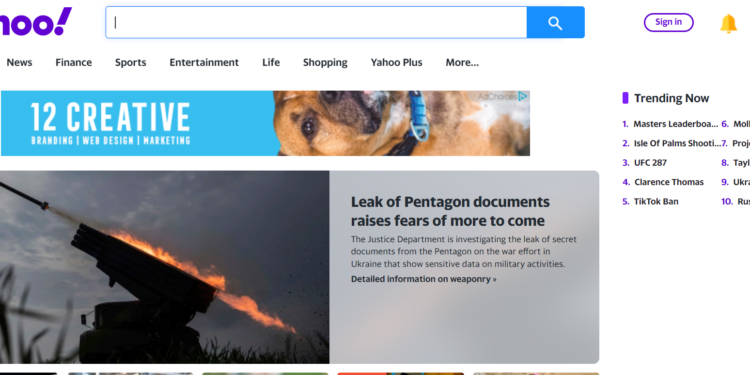Introduction
Yahoo is one of the earliest and most recognized names in the history of the Internet. In 1994, Jerry Yang and David Filo, who were both electrical engineering students at Stanford University, founded Yahoo. Yahoo In its early days, Yahoo was a website directory, a catalog of web pages sorted by topic. Over the years, it became a full-fledged search engine, web portal, and email service. Yahoo played a significant role in shaping the Internet as we know it today. This article will look closely at Yahoo’s history, achievements, and challenges.
The Rise of Yahoo
Yahoo began as a hobby project for Yang and Filo, who created a list of their favorite websites and shared it with their friends. As the list grew longer, they turned it into a website called “Jerry and David’s Guide to the World Wide Web.” The website was a hit among the early internet users struggling to find their way around the nascent medium. In a few months, the website had more than a million hits daily, and Yang and Filo realized they had stumbled upon something big.
In 1995, Yahoo received its first funding from Sequoia Capital, a venture capital firm that recognized the potential of the fledgling company. With the grant, Yahoo hired its first employees and moved to a larger office space. It also expanded its offerings beyond the original directory of websites. Yahoo began to offer search, news, and email services, which made it a one-stop shop for all things internet-related.
Yahoo’s success was noticed. In 1998, it went public, and its shares skyrocketed on the first trading day. Yahoo’s market value reached $2.6 billion, making Yang and Filo instant billionaires. The company’s growth continued over the next few years as it acquired several companies, including Geocities, Broadcast.com, and Hotjobs. Yahoo became a household name and a symbol of the Internet’s potential.
Yahoo’s Achievements
Yahoo’s impact on the Internet is hard to overstate. In its early days, it was the go-to destination for internet users who wanted to find websites on a particular topic. Yahoo’s directory of websites was a precursor to the modern search engine, and it helped to organize the chaotic early days of the Internet. Later, Yahoo developed its search engine, a significant competitor to Google, the search giant that eventually overtook Yahoo in the early 2000s.
Yahoo also pioneered the web portal, a website that aggregated news, email, search, and other internet services. Yahoo’s web portal was one of the most popular on the Internet, and it served as a model for different outlets, including MSN and AOL. Yahoo Mail, the company’s email service, was one of the first web-based email services, and it became the most popular email service on the Internet for a time.
Yahoo’s acquisition strategy was another key to its success. The company acquired several companies in the late 1990s and early 2000s, which allowed it to expand its offerings and reach more users. Some of Yahoo’s most notable acquisitions include Geocities, a website hosting service, and Broadcast.com, a streaming media company. Yahoo also acquired Hotjobs, a job search website that helped establish it as a player in the online recruitment market.
Challenges and Decline
Despite its early success, Yahoo faced several challenges in the 2000s. One of the biggest challenges was the rise of Google, which quickly surpassed Yahoo as the dominant search engine on the Internet. Google’s algorithm was more advanced and accurate than Yahoo’s, and it quickly became the go-to search engine for most.
conclusion
Yahoo was a trailblazer in the early days of the Internet and played a significant role in shaping it as we know it today. Its directory of websites and web portal helped organize the Internet’s chaotic early days, while its email service and search engine were game-changers. Yahoo’s acquisition strategy also enabled it to expand its offerings and reach more users. However, Yahoo faced several challenges in the 2000s, including the rise of Google and the failure to adapt to the mobile Internet. In 2017, Verizon acquired Yahoo’s core internet assets for $4.48 billion, effectively ending Yahoo’s independence. While Yahoo’s influence has waned over the years, its legacy as a pioneer of the early internet era will always be remembered.
Also, Read: Navigating the Nasdaq Futures Market: A Guide for Investors











Discussion about this post